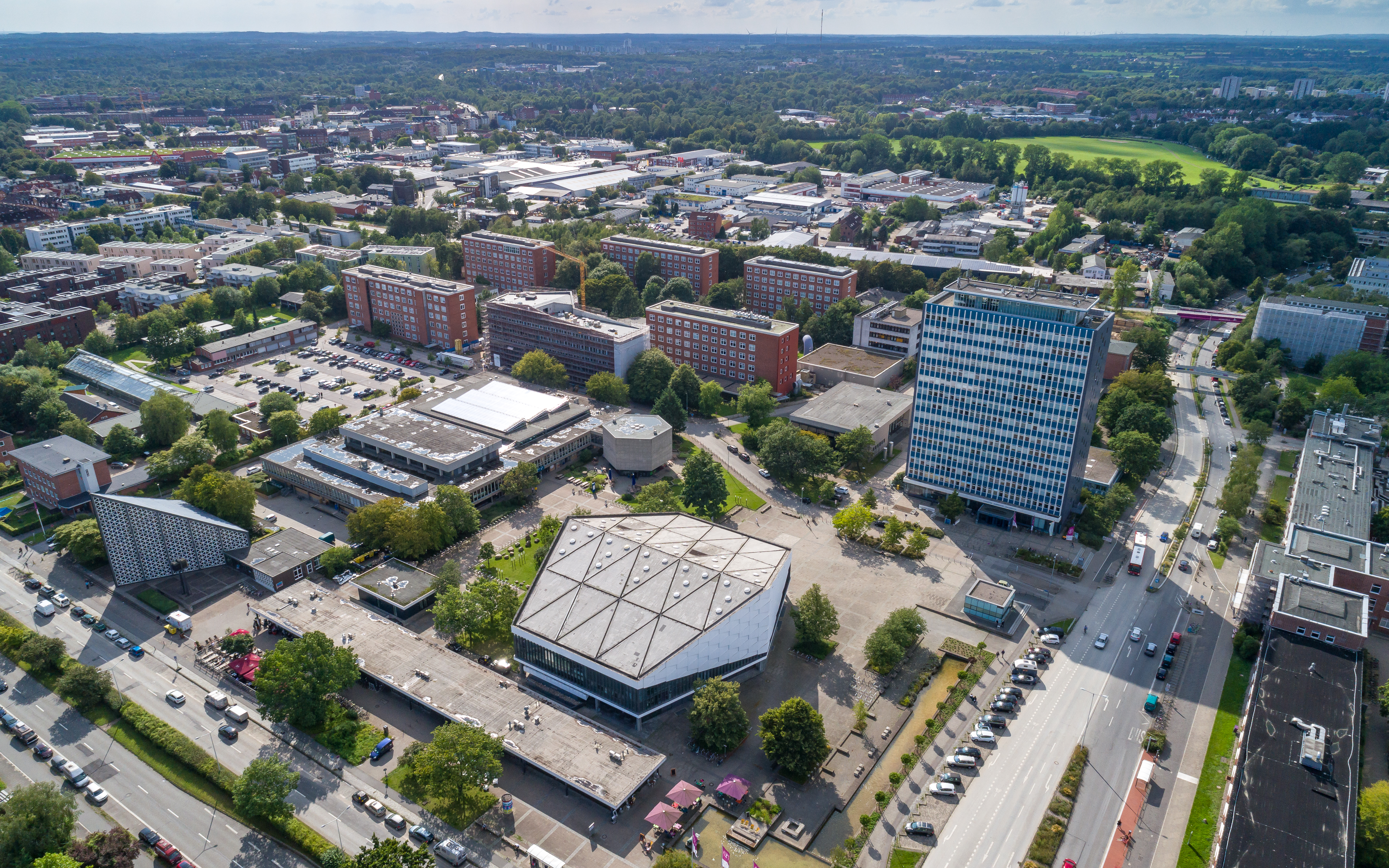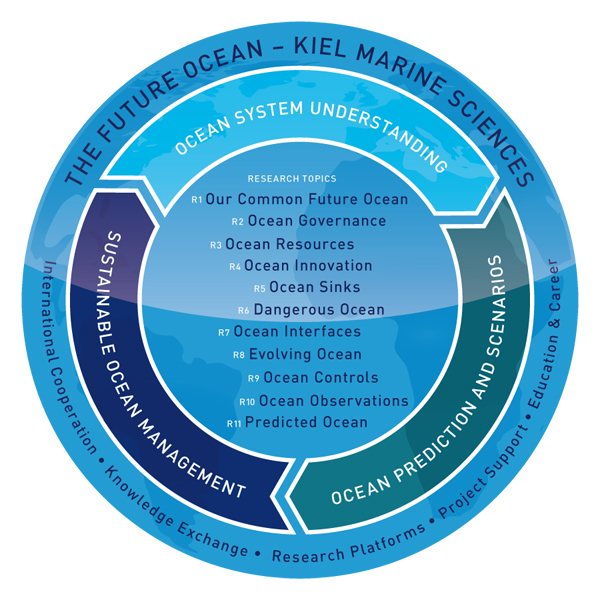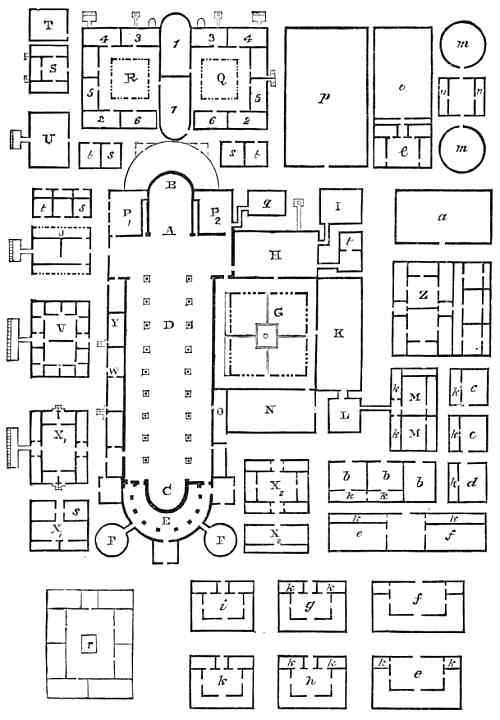|
Christian-Albrechts-Universität
Kiel University, officially the Christian Albrecht University of Kiel, (, abbreviated CAU, known informally as Christiana Albertina) is a public research university in the city of Kiel, Germany. It was founded in 1665 as the ''Academia Holsatorum Chiloniensis'' by Christian Albert, Duke of Holstein-Gottorp and has approximately 27,000 students today. It is the largest, oldest, and most prestigious university in the state of Schleswig-Holstein. Until 1866, it was not only the northernmost university in Germany but at the same time the 2nd largest university of Denmark. Faculty, alumni, and researchers of Kiel University have won 12 Nobel Prizes. Kiel University has been a member of the German Universities Excellence Initiative since 2006. The Cluster of Excellence The Future Ocean, which was established in cooperation with the GEOMAR Helmholtz Centre for Ocean Research Kiel in 2006, is internationally recognized. The second Cluster of Excellence "Inflammation at Interfaces" de ... [...More Info...] [...Related Items...] OR: [Wikipedia] [Google] [Baidu] |
Kiel Institute For The World Economy
The Kiel Institute for the World Economy (, or IfW Kiel) is an independent, non-profit economic research institute and think tank based in Kiel, Germany. In 2017, it was ranked as one of the top 50 most influential think tanks in the world and was also ranked in the top 15 in the world for economic policy specifically. The German business newspaper ''Handelsblatt'' referred to the institute as "Germany's most influential economic think tank", while ''Die Welt'' stated that "The best economists in the world are in Kiel" (). Founded in 1914, the institute is the oldest economic research institute in Germany. Its main areas of specialities include global economic research, economic policy, and economic education. The institute gave rise to the world's largest specialist library of economics and the social sciences, the German National Library of Economics, which has access to more than four million publications in printed or electronic format and subscriptions to over 30,000 perio ... [...More Info...] [...Related Items...] OR: [Wikipedia] [Google] [Baidu] |
The Future Ocean
The Future Ocean is a Cluster of Excellence founded in November 2006 in line with the German excellence initiative by the Christian-Albrechts-Universität zu Kiel (CAU), the Muthesius Kunsthochschule (MKHS), the Institut für Weltwirtschaft (IfW) and the Helmholtz-Zentrum für Ozeanforschung (GEOMAR). It is an interdisciplinary marine research group and it is funded by the German Research Foundation (DFG). Part of the cluster is the Integrated School of Ocean Sciences (ISOS) which is a post graduate school for ocean sciences in Kiel. Goals The ocean plays an important role in the global climate, holds dangers, but simultaneously provides opportunities not just in the form of exploitable resources but also in many different fields of research. With that in mind the scientists in the cluster "The Future Ocean" have one common goal: to reassess the opportunities and risks of global change for the ocean and to allow a sustainable management of its resources based on these insi ... [...More Info...] [...Related Items...] OR: [Wikipedia] [Google] [Baidu] |
Kiel
Kiel ( ; ) is the capital and most populous city in the northern Germany, German state of Schleswig-Holstein. With a population of around 250,000, it is Germany's largest city on the Baltic Sea. It is located on the Kieler Förde inlet of the Bay of Kiel and lies in the southeast of the Jutland Peninsula, on the mouth of the Schwentine River, approximately northeast of Hamburg. The world's busiest artificial waterway, the Kiel Canal, has a terminus in Kiel's Holtenau district. This canal connects the Baltic to the North Sea, with its other end in Brunsbüttel. Most of Kiel is part of Holstein. The boroughs north of the Schwentine also belong to Wagria, while those north of the Kiel Canal are historically part of Southern Schleswig. Kiel is one of Germany's major maritime centres, known for a variety of international sailing events, including the annual Kiel Week, which is the biggest sailing event in the world. Kiel is also known for the Kiel mutiny, Kiel Mutiny, when sailors re ... [...More Info...] [...Related Items...] OR: [Wikipedia] [Google] [Baidu] |
:Category:University Of Kiel Alumni
{{CatAutoTOC ...
Kiel Alumni Alumni (: alumnus () or alumna ()) are former students or graduates of a school, college, or university. The feminine plural alumnae is sometimes used for groups of women, and alums (: alum) or alumns (: alumn) as gender-neutral alternatives. Th ... [...More Info...] [...Related Items...] OR: [Wikipedia] [Google] [Baidu] |
Internet Archive
The Internet Archive is an American 501(c)(3) organization, non-profit organization founded in 1996 by Brewster Kahle that runs a digital library website, archive.org. It provides free access to collections of digitized media including websites, Application software, software applications, music, audiovisual, and print materials. The Archive also advocates a Information wants to be free, free and open Internet. Its mission is committing to provide "universal access to all knowledge". The Internet Archive allows the public to upload and download digital material to its data cluster, but the bulk of its data is collected automatically by its web crawlers, which work to preserve as much of the public web as possible. Its web archiving, web archive, the Wayback Machine, contains hundreds of billions of web captures. The Archive also oversees numerous Internet Archive#Book collections, book digitization projects, collectively one of the world's largest book digitization efforts. ... [...More Info...] [...Related Items...] OR: [Wikipedia] [Google] [Baidu] |
Nazi Germany
Nazi Germany, officially known as the German Reich and later the Greater German Reich, was the German Reich, German state between 1933 and 1945, when Adolf Hitler and the Nazi Party controlled the country, transforming it into a Totalitarianism, totalitarian dictatorship. The Third Reich, meaning "Third Realm" or "Third Empire", referred to the Nazi claim that Nazi Germany was the successor to the earlier Holy Roman Empire (800–1806) and German Empire (1871–1918). The Third Reich, which the Nazis referred to as the Thousand-Year Reich, ended in May 1945, after 12 years, when the Allies of World War II, Allies defeated Germany and entered the capital, Berlin, End of World War II in Europe, ending World War II in Europe. After Hitler was appointed Chancellor of Germany in 1933, the Nazi Party began to eliminate political opposition and consolidate power. A 1934 German referendum confirmed Hitler as sole ''Führer'' (leader). Power was centralised in Hitler's person, an ... [...More Info...] [...Related Items...] OR: [Wikipedia] [Google] [Baidu] |
Gleichschaltung
The Nazi term (), meaning "synchronization" or "coordination", was the process of Nazification by which Adolf Hitler—leader of the Nazi Party in Nazi Germany, Germany—established a system of totalitarian control and coordination over all aspects of German society "from the Economy of Nazi Germany, economy and German Labour Front, trade associations to the Reich Ministry of Public Enlightenment and Propaganda, media, Reich Chamber of Culture, culture and Reich Ministry of Science, Education and Culture, education". Although the Weimar Constitution remained nominally in effect throughout Government of Nazi Germany, Hitler's dictatorship, near total Nazification was achieved by 1935 with the resolutions approved during that year's Nuremberg Rally, fusing the symbols of the party and the state (see Flag of Nazi Germany) and depriving German Jews of their citizenship (see Nuremberg Laws). The tenets of ''Gleichschaltung'', including the Nuremberg Laws, also applied to German-o ... [...More Info...] [...Related Items...] OR: [Wikipedia] [Google] [Baidu] |
World War II
World War II or the Second World War (1 September 1939 – 2 September 1945) was a World war, global conflict between two coalitions: the Allies of World War II, Allies and the Axis powers. World War II by country, Nearly all of the world's countries participated, with many nations mobilising all resources in pursuit of total war. Tanks in World War II, Tanks and Air warfare of World War II, aircraft played major roles, enabling the strategic bombing of cities and delivery of the Atomic bombings of Hiroshima and Nagasaki, first and only nuclear weapons ever used in war. World War II is the List of wars by death toll, deadliest conflict in history, causing World War II casualties, the death of 70 to 85 million people, more than half of whom were civilians. Millions died in genocides, including the Holocaust, and by massacres, starvation, and disease. After the Allied victory, Allied-occupied Germany, Germany, Allied-occupied Austria, Austria, Occupation of Japan, Japan, a ... [...More Info...] [...Related Items...] OR: [Wikipedia] [Google] [Baidu] |
Humanities
Humanities are academic disciplines that study aspects of human society and culture, including Philosophy, certain fundamental questions asked by humans. During the Renaissance, the term "humanities" referred to the study of classical literature and language, as opposed to the study of religion, or "divinity". The study of the humanities was a key part of the secular curriculum in universities at the time. Today, the humanities are more frequently defined as any fields of study outside of natural sciences, social sciences, formal sciences (like mathematics), and applied sciences (or Professional development, professional training). They use methods that are primarily Critical theory, critical, speculative, or interpretative and have a significant historical element—as distinguished from the mainly Empirical method, empirical approaches of science."Humanity" 2.b, ''Oxford English Dictionary'', 3rd ed. (2003). The humanities include the academic study of philosophy, religion, histo ... [...More Info...] [...Related Items...] OR: [Wikipedia] [Google] [Baidu] |
Social Sciences
Social science (often rendered in the plural as the social sciences) is one of the branches of science, devoted to the study of society, societies and the Social relation, relationships among members within those societies. The term was formerly used to refer to the field of sociology, the original "science of society", established in the 18th century. It now encompasses a wide array of additional academic disciplines, including anthropology, archaeology, economics, geography, history, linguistics, management, communication studies, psychology, culturology, and political science. The majority of Positivism, positivist social scientists use methods resembling those used in the natural sciences as tools for understanding societies, and so define science in its stricter Modern science, modern sense. Speculative social scientists, otherwise known as Antipositivism, interpretivist scientists, by contrast, may use social critique or symbolic interpretation rather than constructing Em ... [...More Info...] [...Related Items...] OR: [Wikipedia] [Google] [Baidu] |
Monastery
A monastery is a building or complex of buildings comprising the domestic quarters and workplaces of Monasticism, monastics, monks or nuns, whether living in Cenobitic monasticism, communities or alone (hermits). A monastery generally includes a place reserved for prayer which may be a chapel, Church (building), church, or temple, and may also serve as an Oratory (worship), oratory, or in the case of Cenobium, communities anything from a single building housing only one senior and two or three junior monks or nuns, to vast complexes and estates housing tens or hundreds. A monastery complex typically comprises a number of buildings which include a church, dormitory, cloister, refectory, library, Wiktionary:balneary, balneary and Hospital, infirmary and outlying Monastic grange, granges. Depending on the location, the monastic order and the occupation of its inhabitants, the complex may also include a wide range of buildings that facilitate self-sufficiency and service to the commun ... [...More Info...] [...Related Items...] OR: [Wikipedia] [Google] [Baidu] |








